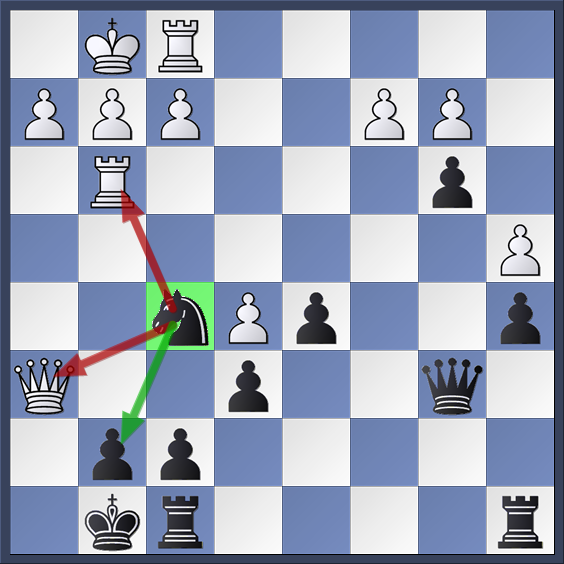It was an odd decision, and one that I won't be repeating. It was based on
- a vague thought that I might not have reached the time control (though I was fairly sure I had) and
- a strong feeling that I didn't deserve to win what must be the worst game I've played in years.
White - Andy Tinker (172)
Black - Matt Fletcher (175)
20 October 2013
35 moves in 75 minutes, plus 15 minutes for every subsequent 7 moves
1. d4 Nf6 2. c4 g6 3. Nc3 d5 4. cxd5 Nxd5
The Grünfeld Defence, Exchange variation - I'm re-learning this opening having played it as a junior, but I've been struggling slightly to stick to the lines recommended in the book I'm reading.
5. Nf3 Bg7 6. Qb3 Nb6
This is a playable line but the book recommendation is 6... Nxc3 7. bxc3 O-O 8. e3 c5 which is what I'll play next time.
7. e3 O-O 8. Be2 Nc6 9. O-O e5?!
Based on a mis-calculation - 9... Be6 was the other move I contemplated and is much safer. For example 10. Qc2 Nb4 11. Qd1 N4d5 looks fine.
10. d5 Ne7
I had intended 10... Na5 but suddenly realised that 11. Qb5 was going to pick up my Knight.
11. e4 a6?! (11... c6 was better but Black is horribly cramped) 12. Be3 Qd6 13. Rac1 f5 14. Rfd1 Nd7? (running out of ideas, I felt I ought to try to move the Bishop from c8) 15. Na4 b6?? (consistent, but awful)
16. Rxc7? The question mark here is not because Rc7 is such a terrible move, but because 16. Rc6! (which was made possible by the previous move) finishes the game immediately - Black's Queen is lost after 16... Nxc6 17. dxc6+ Kh8 18. Rxd6.
16... Kh8
I thought for a long time here, but realised I have nothing. I only really played on to avoid the embarrasment of going down in under 20 moves...
17. Rcc1 f4? 18. Bxb6 g5 (opening the g-file is my only idea in the position, even if it loses another pawn) 19. Nxg5 Qg6 20. Ne6 Rg8 21. f3?! (there's no real need to open the a7-g1 diagonal - but White is still winning easily) Rb8 22. Qa3?? Possibly the worst move of the game, although there are other clear contenders! Almost any other move here retains White's winning advantage.
22... Bf6 defending the Knight and threatening checkmate on g2 23. Bf1 Nxb6 24. Qd6?! Nxa4 (24... Bxe6) 25. Qxb8 Bxe6 26. Qb4 Bd7 27. Rc7?! Bb5 28. Rd2??
28... Bh4? (28... Bxf1! 29. Kxf1 Nxd5! 30. exd5 (the Rook can't take because of Qxg2+) Qb1+ 31. Kf2 Bh4+ is a pretty straightforward combination which finishes the game quickly. My only excuse for not seeing this is that I was incredibly short of time by this point. But then what's my excuse for the rest of the game?)
29. Bxb5 Qb6+ 30. Kf1 axb5 (this is better than 30... Qxc7 31. Bxa4) 31. Rxe7?? Qe3!
Threatening an immediate mate on e1 and getting right into White's position. I realised immediately that this move was going to cause my opponent some serious problems. 32. Re2 Qc1+ 33. Re1 Qc2 34. Re2 Qb1+ 35. Re1 Qd3+ 36. Re2 Qb1+ 37. Re1 1/2-1/2??
In this final position, 37... Qd3+ 38. Re2 Nxb2! wins pretty much on the spot.
After my 35th move, made with my flag hanging, I checked with my opponent that we had made the time control. He said he wasn't sure so we played another move each, after which I was offered the draw. I knew by now I was winning if I had reached the time control. The reasons I accepted his offer were that my nerves were shot after blitzing out the previous moves, and that I really had a strong feeling that I shouldn't be winning a game like this. But that's not how chess works...
All in all, this was a very disappointing game, full of mistakes and errors of judgement. I don't want to play like this again - but it feels good to have shared it!














